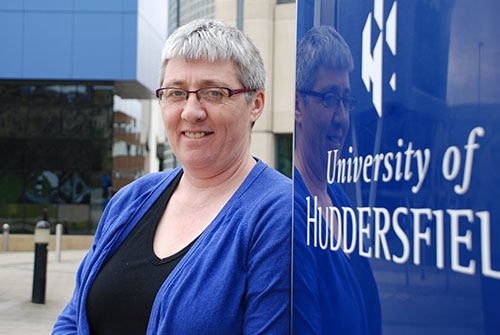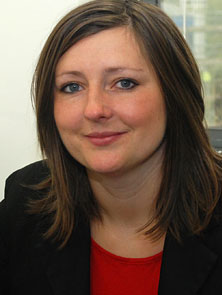One size fits all – not the case for child sexual abuse

Wed, 11 May 2016 11:27:00 BST
“…victims’ recovery from abuse could be made more difficult if it is assumed that their experiences were irreparably damaging …”
 CHILD sexual abuse has become an increasingly high profile issue. But attitudes towards it – and its surrounding narratives – have shifted greatly over the years and even now they could hinder a full understanding of the impact on victims, according to a University of Huddersfield researcher.
CHILD sexual abuse has become an increasingly high profile issue. But attitudes towards it – and its surrounding narratives – have shifted greatly over the years and even now they could hinder a full understanding of the impact on victims, according to a University of Huddersfield researcher.
Dr Jo Woodiwiss, (pictured right) a Senior Lecturer in Sociology, has a long-standing speciality in the narratives of women and of childhood sexual abuse and these parallel topics have been the basis of a sequence of articles, books and presentations.
They include her recent paper on Feminist Narrative Research: Opportunities and Challenges,presented at a seminar series in Sheffield. And in June, she is to be a keynote speaker at the National Counselling & Psychotherapy Conference held in Dublin. Her topic will be Surviving sexual abuse: sex and intimacy as a measure of well-being?.
 One of her concerns is that victims’ recovery from abuse could be made more difficult if it is assumed that their experiences were irreparably damaging.
One of her concerns is that victims’ recovery from abuse could be made more difficult if it is assumed that their experiences were irreparably damaging.
“We have shifted from constructing sexual abuse as actually not particularly harmful to seeing it nowadays as inevitably and overwhelmingly harmful, and within this it is very difficult to tell different stories,” said Dr Woodiwiss.
 “If you meet a ten year-old girl who has been sexually abused, and you say to her that her life is ruined, then that’s not very helpful. The abuse might have negative effects, but we have come to equate harm with wrongfulness. We should be able to say that sexual abuse is wrong not because it does damage – it is just wrong,” said Dr Woodiwiss.
“If you meet a ten year-old girl who has been sexually abused, and you say to her that her life is ruined, then that’s not very helpful. The abuse might have negative effects, but we have come to equate harm with wrongfulness. We should be able to say that sexual abuse is wrong not because it does damage – it is just wrong,” said Dr Woodiwiss.
She has therefore examined ways to support people who have been sexually abused, but without constructing them as necessarily and overwhelmingly damaged.
“The trouble with any dominant story is it can’t incorporate everybody’s experiences and that is one of the issues around sexual abuse,” said Dr Woodiwiss, whose books include 2009’s Contesting Stories of Childhood Sexual Abuse. She also examines the issue in the chapter she has authored for a new book on feminist narrative research.
Due to be published later in 2016, the volume is co-edited by Dr Woodiwiss, with the University of Huddersfield’s Dr Kate Smith (pictured right) – a Research Fellow in the Centre for Applied Childhood, Youth and Family Research – and Dr Kelly Lockwood of Salford University.
Dr Woodiwiss leads the Abuse and Interpersonal Relationships research group at the University of Huddersfield and is a convenor of the sexgen Northern Network – a collaborative interdisciplinary network bringing together gender and sexuality-based research centres around the North of England.







